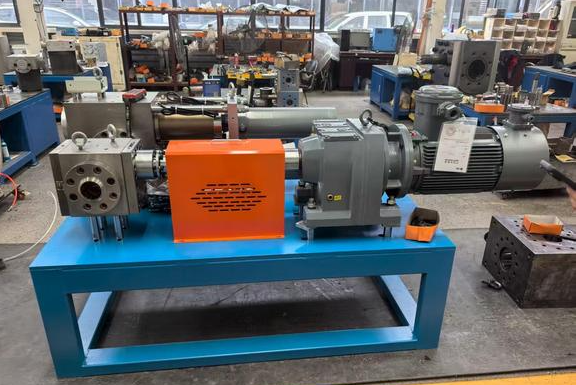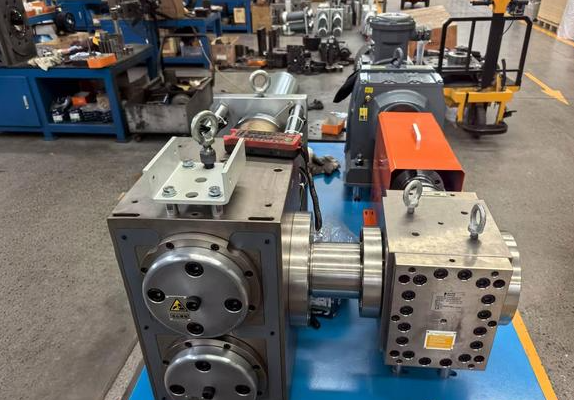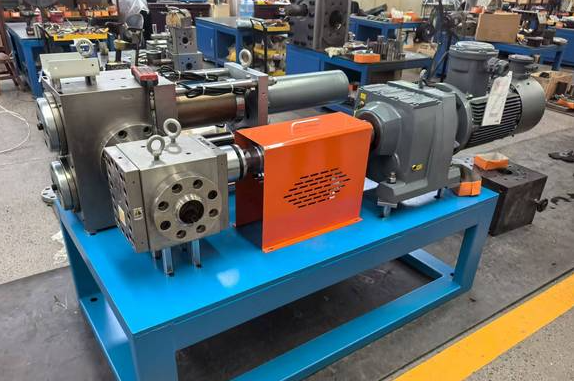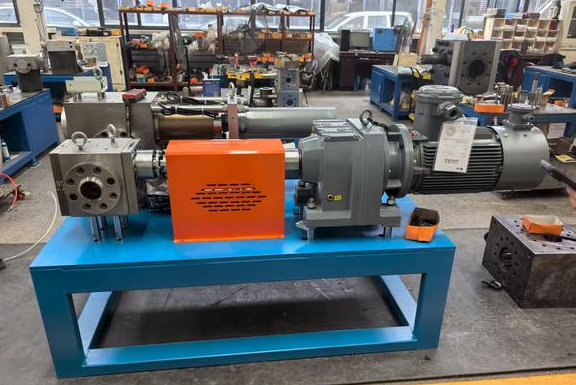Hot Melt Adhesive Melt Pump User Guide
Many users of hot melt adhesives have encountered these frustrations: unstable adhesive flow, uneven dispensing, or even clogging. The culprit behind these issues is often the melt pump—a critical component in the hot melt system. Today, we'll discuss this unassuming yet vital little device.

Why is a hot melt adhesive melt pump necessary?
Solve flow fluctuations: Conventional extrusion systems are susceptible to pressure variations, causing inconsistent adhesive output.
Enhance precision: For processes like precision coating and dispensing, even a 0.1mm error can impact product quality.
Extend equipment lifespan: Stabilizes system pressure and reduces impact loads on the extruder.

Three Key Considerations for Selecting a Melt Pump
① Material Selection
Standard Type: Chrome-plated alloy steel (suitable for general hot melt adhesives)
Corrosion-Resistant Type: Stainless steel or special coatings (for reactive adhesives)
High-Temperature Type: Tool steel (for adhesives exceeding 200°C)
② Specification Matching
Remember this formula:
`Theoretical Flow Rate = Pump Displacement × RPM × Efficiency Factor`
Select models 15-20% larger than actual requirements to allow adjustment margin
③ Special Features
Heating element: Prevents adhesive solidification during cold starts
Pressure sensor interface: Facilitates integration with automated control systems
Quick-release design: Simplifies daily cleaning and maintenance

Precautions for Daily Use
Installation Phase:
Ensure pump body and motor shaft concentricity ≤0.05mm
Preheat with thermal oil to operating temperature before initial use
Allow thermal expansion space when connecting piping
Operating Techniques:
Startup sequence: Activate heating → Run at low speed → Gradually adjust to operating speed
Shutdown procedure: Decrease speed → Drain residual adhesive → Maintain heating for at least 30 minutes
Troubleshooting:
Reduced output → Inspect gear clearance (normal range: 0.03-0.05mm)
Abnormal noise/vibration → Immediately stop operation and inspect bearing condition

Maintenance Secrets for Extended Lifespan
Weekly: Inspect seal condition, clean inlet/outlet filters
Monthly: Check gear wear, replenish high-temperature grease
Quarterly: Full disassembly inspection, replace all O-rings
Annual overhaul: Send to professional manufacturer for dynamic balancing test
Remember this tip: When idle for over 8 hours, inject specialized cleaning adhesive into the pump chamber to prevent residual adhesive carbonization.
Email: sale@meltpump.com
WhatsApp: +86 158 3833 1071